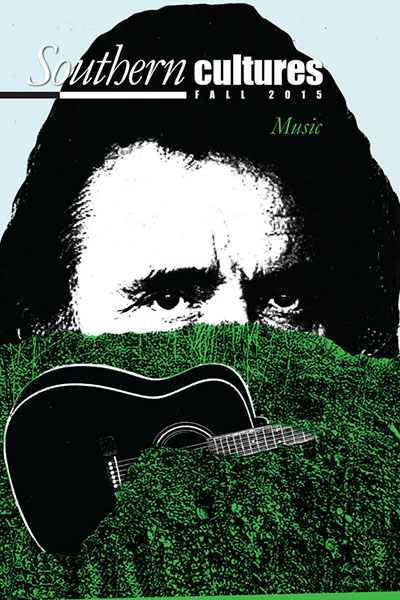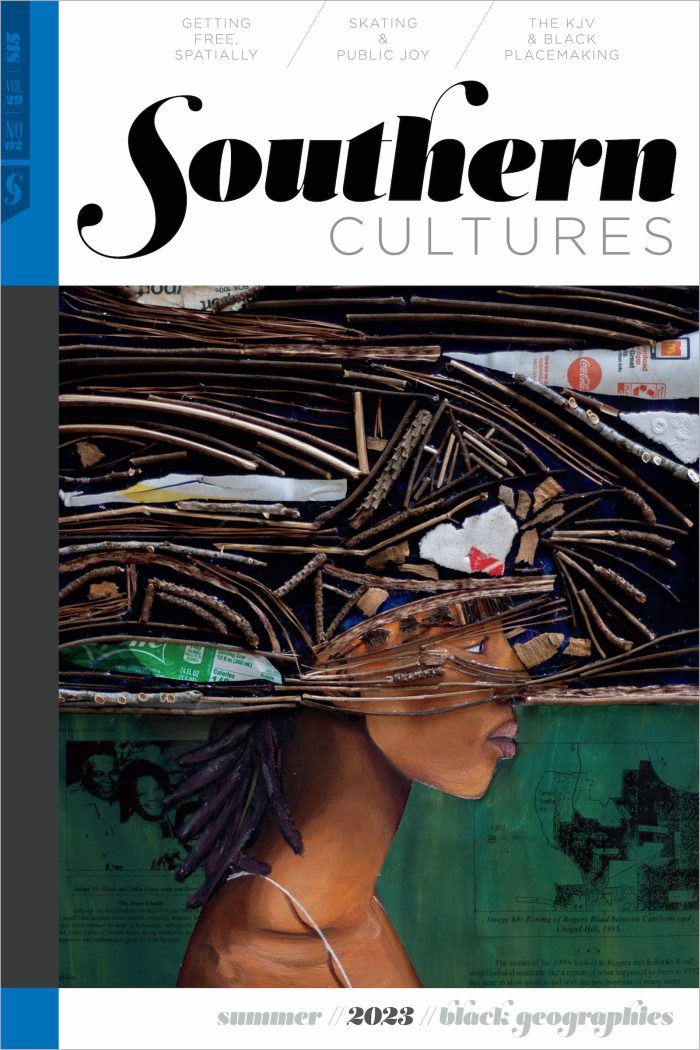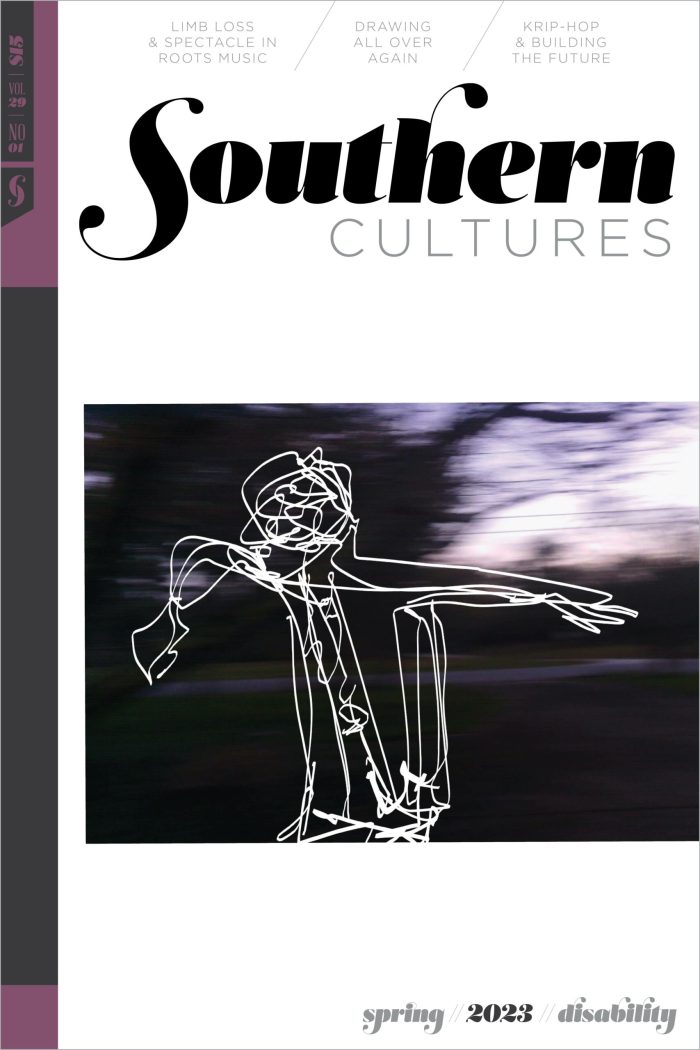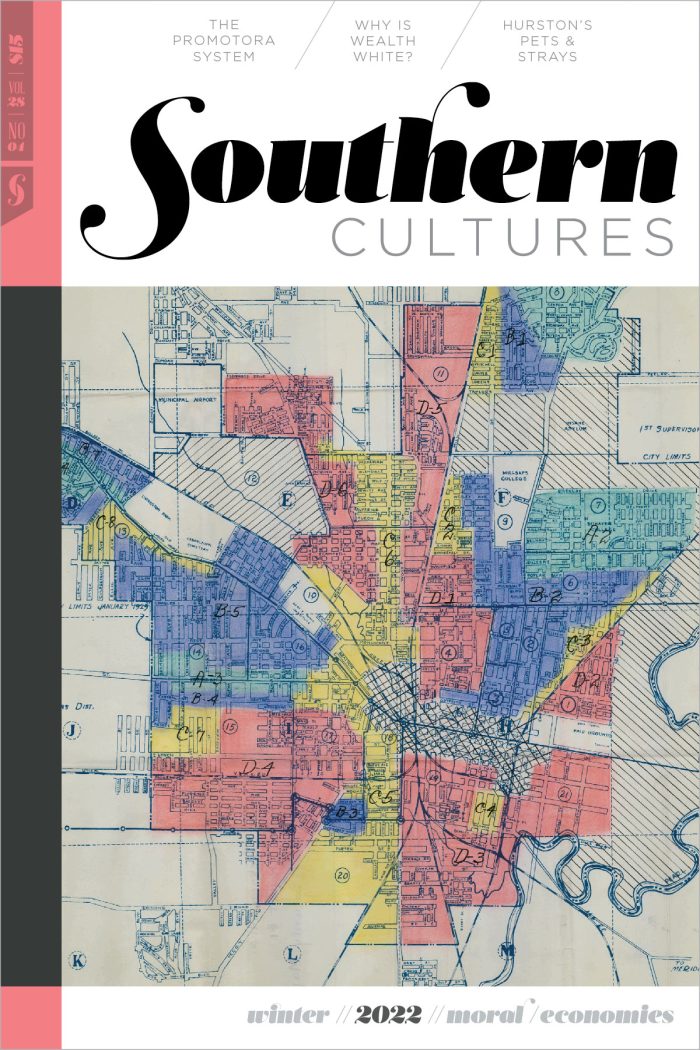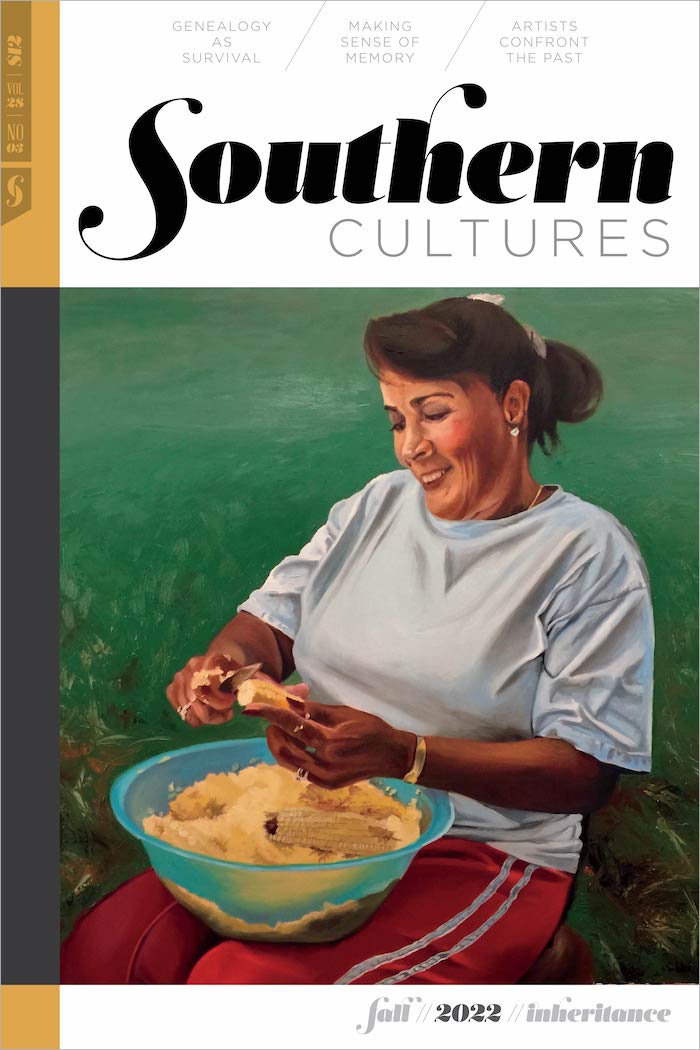BUY ACCESS
by Harry L. Watson
“[I]n a long history of poverty, defeat, and suffering on all sides . . . music in multiple forms became an indispensable source of solace, renewal, and strength.” Is southern music special? What makes it different from “American” music, unless most American music is southern anyway? At the least, why has so much American music »
BUY ACCESS
by Harry L. Watson
We at Southern Cultures, and southern scholars generally, will always remember Michael for his brilliant insights and penetrating criticisms, unfailingly delivered with kindness, generosity, and wry, self-deprecating humor. His loss is a painful blow to everyone who takes the South seriously. This issue was going to press when we learned of the tragic, untimely death »
BUY ACCESS
by Johnny Cash
“Look, I appreciate . . . all the praise and the glory, but it doesn’t change the way I feel about anything, really. I just do what I do and just hope the people enjoy it and just try to be myself in whatever I do.” On August 20, 2003, MTV News correspondent Kurt Loder »
BUY ACCESS
by Marcus Desmond Harmon
“Emmylou Harris’s post-Parsons work is a celebration of complicated grief, casting about for ways to both ‘move on’ and stay faithful to the past.” Emmylou Harris’s solo musical career began with a death. On September 19, 1973, her duet partner Gram Parsons collapsed from a drug overdose and died in his hotel room in Joshua »
Music, Migrant Life, and Scenes of a “Mexican South”
by Alex E. Chávez
“The strumming of stringed instruments booms out through the PA, elaborate fiddle melodies erupt, followed by the soaring voice of the poet-practitioner, embracing those present, scanning the scene before him . . . drifting, shaping, moving verses that elicit a chorus of gritos.” It’s a typical sweltering July evening in central Texas, close to ten »
Music
Behind the Music of Muscle Shoals
by Christopher Reali
“‘We took time, there was no set pattern to how we recorded. We might record all day, go eat a hamburger, and record ’til midnight. I mean we didn’t have no three-hour sessions. No such thing.'” During the mid-1950s, several amateur musicians living in and around the Muscle Shoals region of Alabama made a leap »
BUY ACCESS
by Michael Urban
“‘I think that everyone who lives here and plays music feels honored in some way, you know. It’s a real privilege to be able to live in New Orleans and play music.'” The term “New Orleans musician” refers to a highly valorized, historically rooted identity shared by a select community in the Crescent City. However, »
Music
Lynyrd Skynyrd, Normaal, and Regional Identity
by Maarten Zwiers
“‘I am proud to be a farmer in the lowlands / A place where even squares can have a ball . . .'” In the spring of 1975, as in previous years, Lochem organized its annual music festival. Lochem is a Dutch village in the rural eastern Achterhoek region (literally, “the back corner”), nestled near »
BUY ACCESS
by Cathryn Stout
“In 1988 and ’89 I started convincing people to come down there. [W]hen I got B.B. King, which took me seven years, that’s really when it completely turned.” John Elkington moved to Memphis, Tennessee, to start law school in 1970, a year after urban clearance claimed its first building on Beale Street. The twenty-two-year-old student »
by Annette Cox
“‘Men say mill folks are rotten / an’ mean down to the core, / But if you seen your chillern starve, / wouldn’t you ask fer more?'” While doing research on textiles during the Great Depression, I found this poem about Ella May Wiggins on the March 8, 1932 editorial page of the Greensboro Daily »
BUY ACCESS
by Lenard D. Moore
“For fifty years I sweat my dues, / wept salt liquor from the blues. / This story I tell wherever I go.” I never had the chance to stay in school.My daddy said “work,” and his word was rule.This story I tell wherever I go.
BUY ACCESS
by William R. Ferris
“Wherever there is suffering, wherever loneliness, wherever love is felt, your spirit, your voice, your music will be heard.” You touched our hearts in such enduring ways. I first heard “The Thrill Is Gone,” when I applied for Conscientious Objector status at Fort Bragg in December 1969. Your song bonded that moment in my memory, »
BUY ACCESS
by Michael K. Honey
“No one I knew, not even Pete Seeger, could make that banjo ring with the sounds of the Appalachian mountains the way Guy could.” I first met musician-organizer Guy Carawan in the early 1970s at a gathering at Highlander Center, when it was located for a time in Knoxville, Tennessee (its current home is in »
by Aaron Smithers
We pulled off the main road, rolled down the windows, and drove toward the music. Tune into this playlist from our 2015 Music Issue, featuring off the beaten tracks suited to summer wanderings. Pressed into the pages of an imagined southern music scrapbook, photos and clippings tell of the hard work, heartbreaks, late nights, and »
